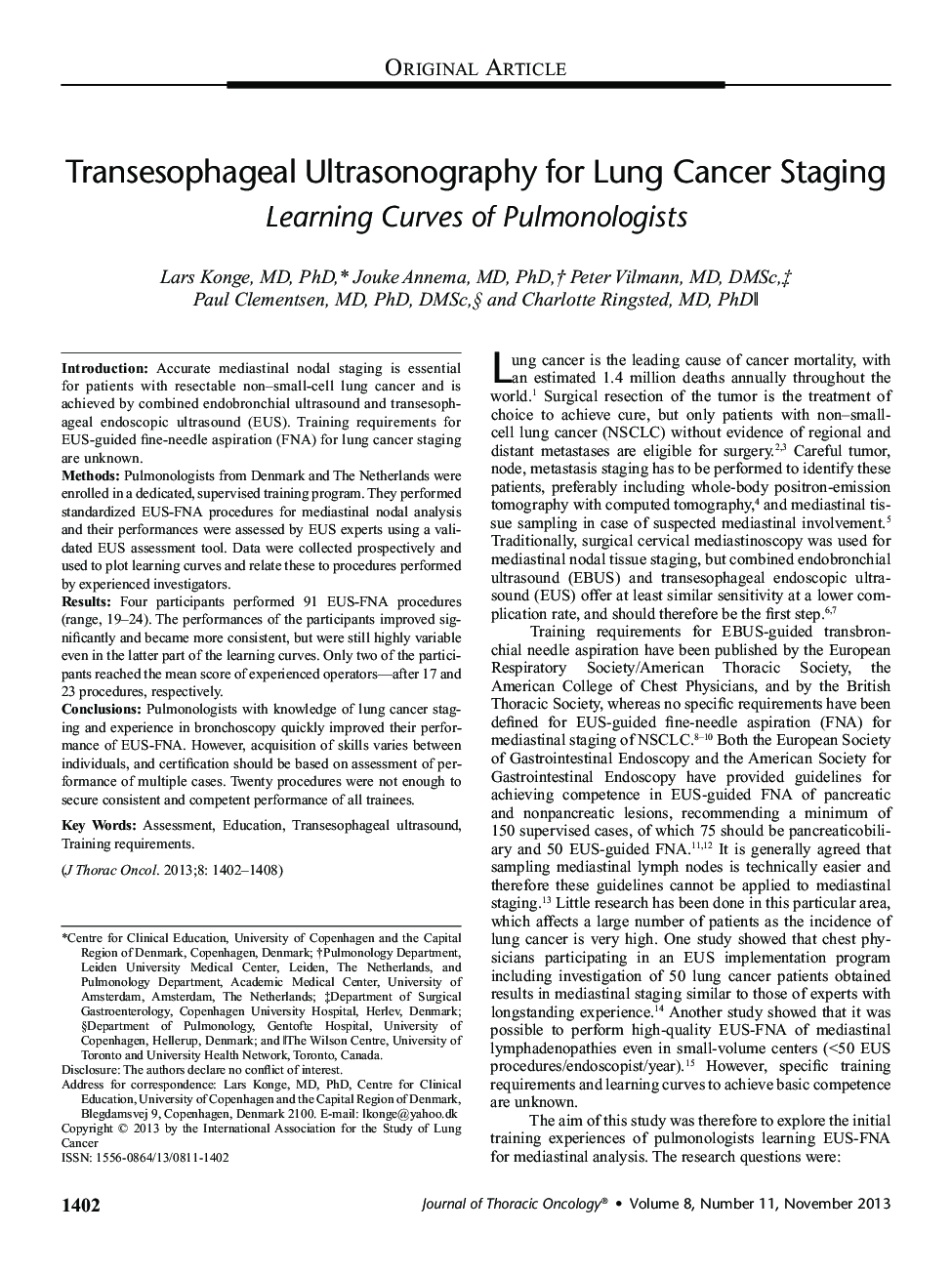| Article ID | Journal | Published Year | Pages | File Type |
|---|---|---|---|---|
| 3989955 | Journal of Thoracic Oncology | 2013 | 7 Pages |
IntroductionAccurate mediastinal nodal staging is essential for patients with resectable non–small-cell lung cancer and is achieved by combined endobronchial ultrasound and transesophageal endoscopic ultrasound (EUS). Training requirements for EUS-guided fine-needle aspiration (FNA) for lung cancer staging are unknown.MethodsPulmonologists from Denmark and The Netherlands were enrolled in a dedicated, supervised training program. They performed standardized EUS-FNA procedures for mediastinal nodal analysis and their performances were assessed by EUS experts using a validated EUS assessment tool. Data were collected prospectively and used to plot learning curves and relate these to procedures performed by experienced investigators.ResultsFour participants performed 91 EUS-FNA procedures (range, 19–24). The performances of the participants improved significantly and became more consistent, but were still highly variable even in the latter part of the learning curves. Only two of the participants reached the mean score of experienced operators—after 17 and 23 procedures, respectively.ConclusionsPulmonologists with knowledge of lung cancer staging and experience in bronchoscopy quickly improved their performance of EUS-FNA. However, acquisition of skills varies between individuals, and certification should be based on assessment of performance of multiple cases. Twenty procedures were not enough to secure consistent and competent performance of all trainees.
